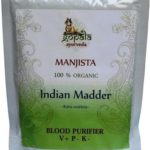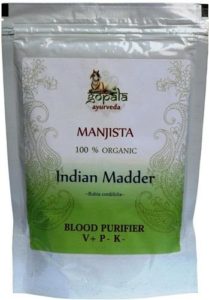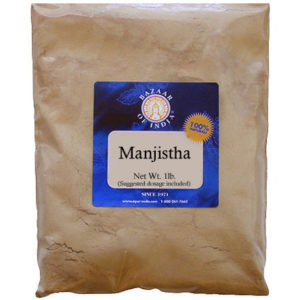Manjistha Tea
Manjistha Tea is a decoction made from powdered manjistha, an Ayurvedic herb. Its impressive array of nutrients endows it with quite a few medicinal uses.
History and origin
In India, manjistha root extract has been regarded as a potent Ayurvedic herb with many medicinal properties for thousands of years. Ancient Indian sage and physician Charaka classified it as a ‘rejuvenative’ that acts as a detoxifier and an anti-pigmentation agent while Sushruta, another Ayurveda sage, and surgeon, recommended the herb for balancing the bio-elements or life-energies of the body for good health.
Manjistha Tea Benefits: What is it Good For
Detoxifying properties
Manjistha is extremely beneficial for removing contamination from the blood and breaking down blockages in all the channels of the body, thereby facilitating proper functioning of the circulatory system.
Since it also enhances the absorption of nutrition in the cells and cleanses the lymph nodes, it reduces the chances of lymphedema.
Due to this reason, it nullifies the effect of hypothyroidism, which slows the drainage of the body’s lymph nodes.
Hence a cup of this tea a day would contribute to a fit body.
Boosts immunity
Its ability as a vine to effortlessly spread across the body combined with its intense bitterness naturally kills toxin in various organs such as kidneys, liver, spleen, skin and pancreas. Besides this, its soothing effects on the nervous system along with the antioxidants present, the tea is instrumental in boosting overall immunity.
For the skin
Both the external and internal use of manjistha facilitates the removal of acne, freckles, and uneven skin tone besides promoting healthy, glowing, skin. Manjistha tea even enhances the healing of damaged tissues aside from diseases like eczema and psoriasis by detoxifying the skin.
Facilitates weight Loss
As a result of an enhanced liver function which improves metabolism, this decoction also enables weight control.
Anti-Inflammatory properties
Owing to the herb’s ability to expel free radical and xenobiotic toxins which are responsible for inflammation and pain, it helps to keep issues such as gout, arthritis, glandular swellings in check.
For gynecological disorders
Since a clogged lymphatic system gives rise to many gynecological problems, the infusion helps to fight disorders such as endometriosis, dysmenorrhea, amenorrhea and oligomenorrhea by keeping the lymph nodes clear. It facilitates regular and healthy menstruation also being useful for post-natal ailments and excessive abdominal pain or bleeding.
As an anti-diabetic
Because of its anti-hyperglycemic action, the herbal decoction helps to keep blood sugar levels in check. Its antipruritic effects accelerate healing of wounds, making it suitable for treating diabetic ulcers.
Cancer prevented properties
Cancerous cells are a result of free radical damage to healthy cells caused by carcinogenic toxins. It contributes to drain these toxins from the body while its antioxidants prevent free radical damage, thus minimizing chances of getting afflicted with this deadly disease.
Aids in digestion
Besides facilitating healthy digestion by boosting liver function, its astringent compound also helps to treat constipation, dysentery, worm infestations, and diarrhea alongside other gastrointestinal issues such as loss of appetite and dyspepsia.
Improves heart health
Along with its blood purifying properties, the decoction helps in the regulation of blood pressure while discouraging the narrowing of blood vessels, heart blockage, as well as blood clot formation. A cup of this decoction a day would, therefore, ensure a good heart health.
Deters urinary system disorders
Its diuretic and antimicrobial properties are beneficial for treating urinary tract infections and urinary calculi.
How to make manjistha tea
Ingredients
- Water
- Manjistha Powder
- Honey for taste
Directions
- Boil 200ml of water in a saucepan
- Pour the boiled water into a cup
- Mix 1/4 teaspoon of manjistha powder and stir until dissolved
- Add half or one teaspoon of honey since the powder has a bitter taste
- Stir well
Safety and Precautions
Side effects
Although there are no known side effects of the tea, overconsumption of the same is ill-advised.
During pregnancy
An infusion of Manjistha along with jujube berries or butter is an excellent remedy for treating itchy stretch marks during pregnancy. Its intake in small quantities by breastfeeding women is considered safe. However, consult your doctor before consuming the tea to be on the safe side.
Where to buy
You can buy manjistha powder online as well as in herbal or ayurvedic stores.
References
- http://www.ayurvedictalk.com/manjistha-ayurvedas-rejuvenation-herb/2597/
- http://www.ayurvedacollege.com/articles/students/Pregnancy
- https://www.gersonayurveda.com/giam-blog/2019/5/9/pregnancy-and-motherhood-in-ayurveda-by-dr-scott-gerson
- http://www.herbalremedies.com/manjistha-information.html
- http://easyayurveda.com/2013/03/20/manjishta-rubia-cordifolia-benefits-usage-dose-side-effects/
Article was last reviewed on 27th July 2021
Related Articles
Leave a Reply
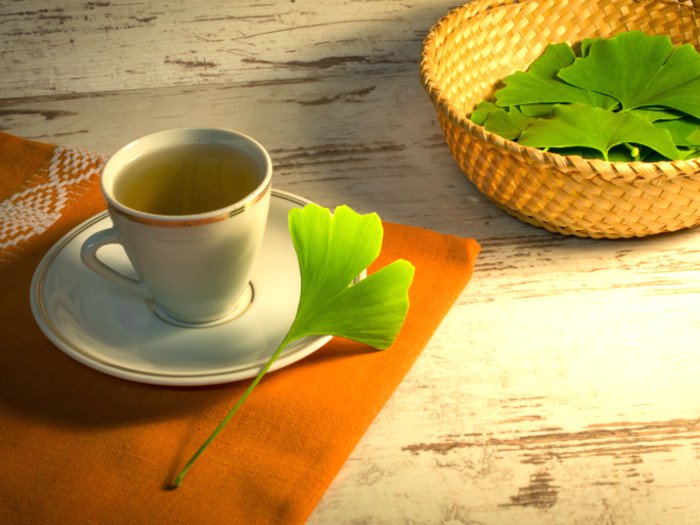
Ginkgo Biloba Tea
The Ginkgo Biloba tea is an herbal infusion obtained from the extract of the dried leaves
Read more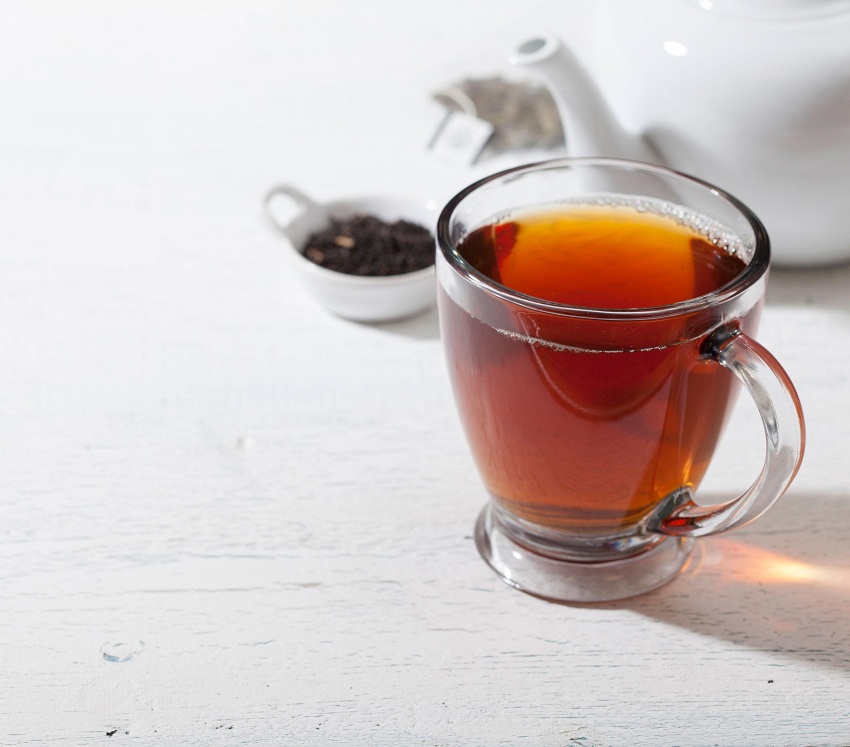
Black Tea
Black tea, belonging to the same group as the green, white and oolong teas is the most oxi
Read more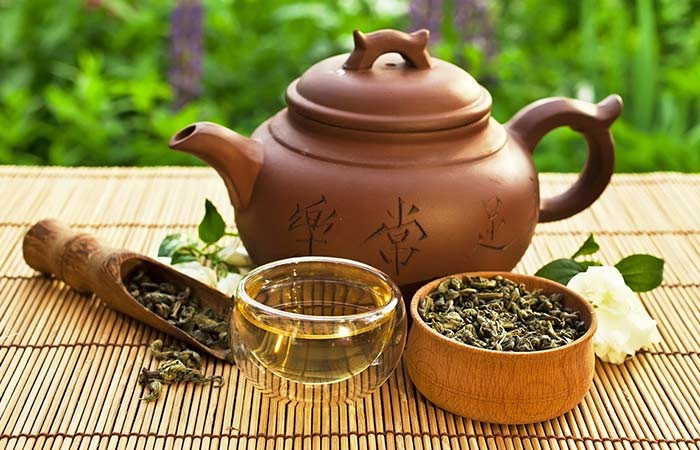
Oolong Tea
What is oolong tea Oolong, a traditional beverage of China, is prepared from the buds, st
Read more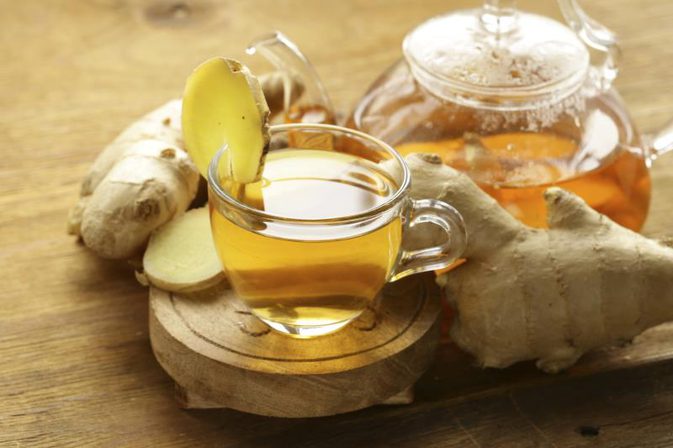
Ginger Tea
Ginger tea, prepared from the roots of ginger, is a popular herbal beverage of Asia. Becau
Read more
